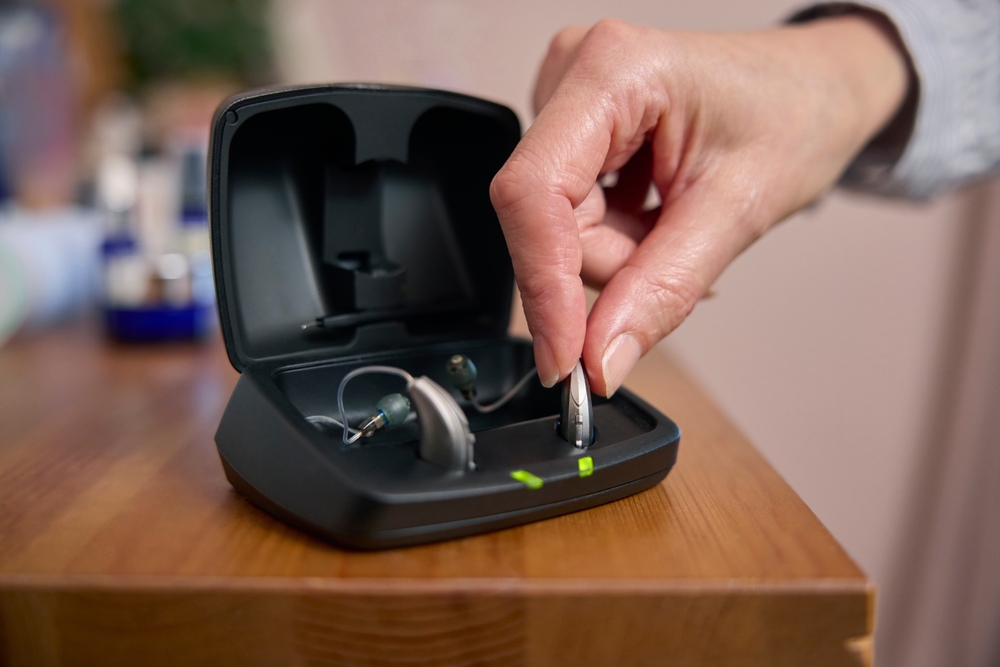As we age, we all know that hearing loss and specific mental health challenges can worsen despite a healthy, active lifestyle. But scientists have discovered a strong link between the two that shouldn’t be ignored and it may help if you don’t turn that hearing aid off.
People with untreated hearing loss are twice as likely to suffer from depression. Close to 27% more people with untreated hearing loss reported “frequently feeling sad” compared to those who used a hearing aid.
They were also 39% more likely to feel that the people around them get upset for “no reason” and 24% more likely to avoid social activities they once loved.
Let’s explore this fascinating study and an even “sadder statistic” you won’t want to hear but should know about. Don’t Turn That Hearing Aid Off!
This study turns our ideas about hearing loss upside down
For centuries, age-related hearing loss has been considered a “harmless” condition. It was thought that the other senses would merely compensate. The person would just get by and go on to live the rest of their life healthily, safely, and happily. Hearing loss was not thought to have any health impact beyond the hearing impairment.
Now we know better. This study demonstrates just one of the greater effects that hearing loss has on overall health.
This significant and well-structured study forces us to rethink hearing loss as a society.
How the study was conducted
Dedicated researchers at the National Institute for Aging (NCOA) conducted this study and surveyed over 2000 people 50 and older. The participants included a mix of hearing aid wearers and those with untreated hearing loss. They asked clinically-relevant questions to determine the levels of:
- Depression
- Anxiety
- Paranoia
- Isolation
The study took a ground-breaking step by including over 2000 family members of the study participants. They did this to help validate what the participants were self-reporting. With this added verification, this study becomes even more relevant when we talk about the effects of hearing loss.
How depression impacts health and quality of life
According to the American Psychological Association, those suffering from depression are more likely to develop eating disorders that can lead to severe obesity or extreme weight loss. They are more likely to suffer from insomnia and memory loss.
They have reduced reaction time, which can lead to severe injuries while cooking, driving, cleaning, and other activities. Those with depression have even been found to heal more slowly, leading to complications and lengthy hospital stays.
Depression can increase fall risk in older adults.
As the hearing loss progresses, so does the depression. The individual often becomes more and more isolated, lonely, and unable to care for him or herself.
Now, let’s look at a really sad statistic.
Hearing aid usage rates
Only around 25% of those who would benefit from a hearing aid actually wear them. That’s right. For many, this increased rate of depression and all of its negative effects are completely unnecessary and preventable, yet they are not taking steps to prevent it.
Why so many people don’t wear a hearing aid
When asked why they don’t wear a hearing aid, many people say they own one. They just don’t wear it because it makes them “feel old.” Others say that it impacts how people see them. They’re embarrassed.
These people would benefit from a hearing aid upgrade. Modern hearing aids work better, and they are also more discreet and allow people to sync with devices. This makes them feel less like a hearing aid and more like an extension of their smart technology.
A smaller but significant number of people say they “can’t afford one.” States and insurance companies are now recognizing the connection between untreated hearing loss and overall health. They are helping to make hearing aids more affordable and accessible. In addition, people who object to the price of hearing aids also don’t realize how much-untreated hearing loss can cost them in the long run. They don’t recognize how hearing loss impacts their overall life. Untreated hearing loss can increase your overall healthcare costs by as much as 4o percent in just a few years.
What can you do to reduce hearing-related depression symptoms?
Wear your hearing aid proudly. Help fight the stigma people feel about wearing a hearing aid by showing them how much better you feel when you can hear.
Take a little time to master the advanced features of your modern hearing aid to optimize your hearing experience in every setting. If you’re just turning the volume up and down, you’re not getting the most out of your hearing aid. If you haven’t upgraded your hearing aid in a while, meet with your hearing specialist to give them a try.
If you feel you’re not getting the most out of your hearing aid and are tempted to leave it off, talk to your hearing specialist about how to use your hearing aid more effectively.



